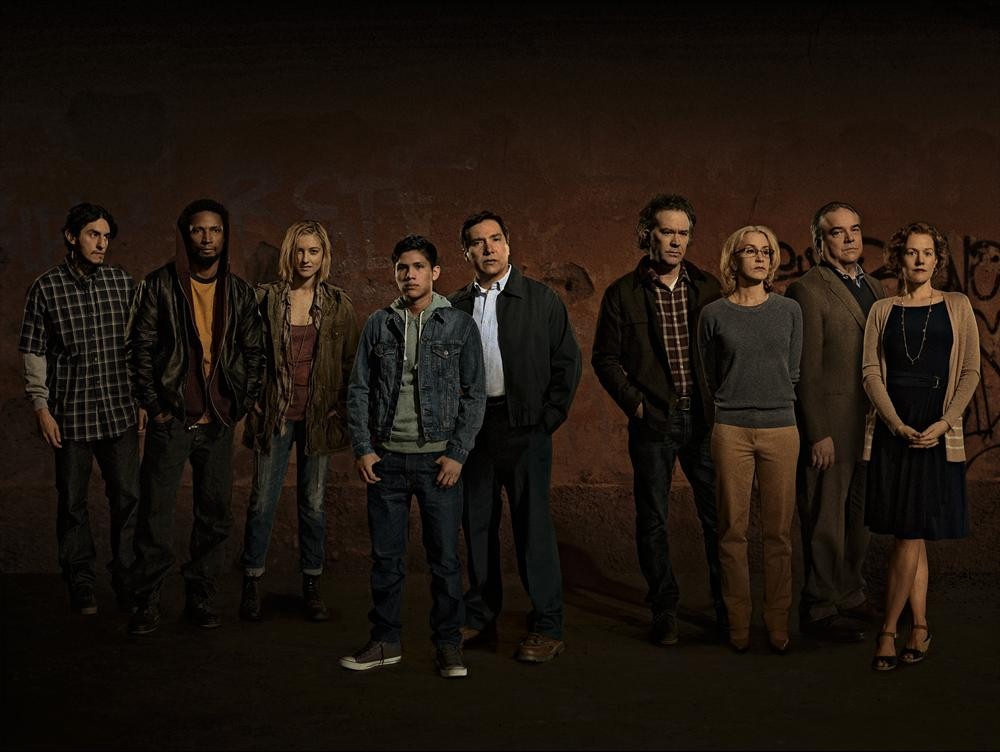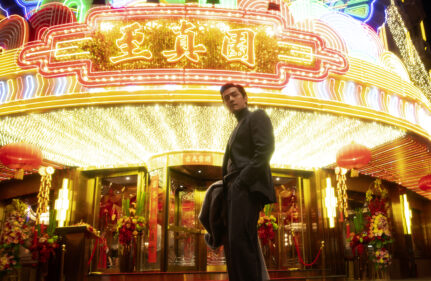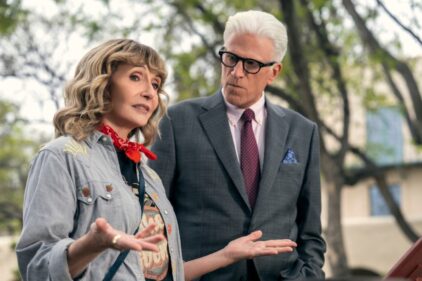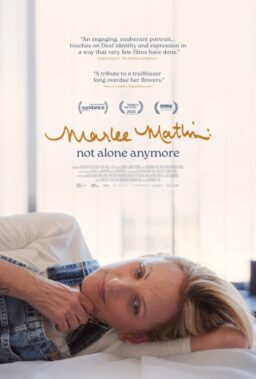From HBO’s “True Detective” to NPR’s “Serial,” our national
obsession with crime seems to be at an all-time high. If there’s anything true
about television, it’s that success breeds copycats, and so the interest in
criminal behavior has led to a wave of new and returning shows about murder and
other illegal activities. Just this week alone, ABC premieres “American Crime,”
“Broadchurch” returns to BBC America, and CBS unleashes “CSI: Cyber.” All have
star power in front of and behind the camera, and yet all programming about
criminal enterprises is not created equal and the member of this trio that
rises to the top may surprise you.

In fact it’s not even much of a contest. From “12 Years a
Slave” writer John Ridley, ABC’s “American Crime,” premiering Thursday, March 5th
at 10pm EST, is the only one of these three programs that correctly balances
narrative with character. It’s often greatly skewed in mystery shows as the twists
and turns overpower the writers’ room and they forget to craft characters who
feel genuine. What’s most fascinating about “American Crime” is how
well-rounded the characters feel, as if they existed before the action of the
show, unlike in most crime dramas in which the majority of roles are mere plot
devices at best. As you may have been able to tell from the ads, the program a
bit too often wears the banner of “Very Important Show” but a grounded, talented
cast carries it over those melodramatic speed bumps.
“American Crime” opens with two calls—one to 911 about a
neighbor spotting bodies next door and then one to a father (Timothy Hutton),
being told the news that no parent wants to hear: he’ll have to fly from
Arizona to Modesto, CA to identify the remains of his son, who has been shot
dead in the house he shared with a wife now in critical condition and the
victim of a rape. Who killed Russ Skokie’s son? Why? And how does a father deal
with that grief? Russ’ ex-wife Barb (Felicity Huffman) is more furious than mournful,
pushing the police to investigate more intensely and railing against a husband
who she seems to have left for good reason. Meanwhile, Eve (Penelope Ann
Miller) and Tom Carlin (W. Earl Brown) sit by their daughter’s bedside and pray
for her recovery, while disagreeing with Russ and Barb as to what to do next.

At the same time, we meet a single father (Benito Martinez) and
a pair of junkies (Elvis Nolasco & Caitlin Gerard) who will be intertwined
with the four-parent tragedy at the show’s core. The fact that Ridley draws
these characters out, making them interesting, engaging people of their own is
one of the main reasons that “American Crime” works. These are the people on “Law
& Order” or “CSI” who are mere set dressing, but Ridley is going for
something greater than the crime itself, painting a picture of victims and criminals in which some of the brush strokes from either side blend together. The
show sometimes hits a few V.I.S. buttons with too much force, but more
infrequently than the overheated ads might have you believe. The down beats,
the character-driven moments, far outweigh the issue-driven dramatic writing,
and make the latter more engaging. There’s a scene between Nolasco and King in
episode three that is one of the best on network TV in the ’14-15 season.
It helps greatly that Ridley and his crew have assembled
such a top-notch cast. Brown is always great, Hutton hasn’t been this good in
years, and Martinez really takes a character who could have been a cliché and
makes him emotionally genuine. And when a drama has unbelievably talented
actors like Lili Taylor and Regina King in supporting roles, you know the
casting agent is doing something right. “American Crime” is also way more
visually accomplished than most network dramas trying to stem the erosion of
viewers to cable (I’m looking at you “Secrets and Lies” and “The Slap”). In
fact, one could easily forget that this is an ABC drama and mistake it for
Showtime or Netflix.

The same cannot be said for “CSI: Cyber,” which screams CBS
procedural drama from scene one on Wednesday, March 4th at 10pm EST.
This train wreck of a show often plays like a parody of bad crime drama that
one would see within a Seth Rogen comedy, for example. From the very beginning,
it’s laughably over-produced, as the camera zooms in on characters sitting at
computer screens, trying to bring tension and excitement to the proceedings
through camera and editing tricks. Only a “CSI” series would include four edits
and a zoom when someone drinks a Big Gulp. The over-direction and
over-production here does no favors for an over-talented cast, all of whom look
like they wish they were somewhere else. I’m also just terminally exhausted by
programs that fearmonger and use the exploitative hook of children in jeopardy
for entertainment. “Stalker” is the worst show of ’14-15 only because it’s one
of the worst shows EVER, but “CSI: Cyber” is in the conversation, and for
similar reasons.
In the opening scene of “CSI: Cyber,” a baby is stolen right
out of her crib and the panicked parents hear foreign voices on their baby
monitor. It turns out that the monitor had been hacked. Why? And can our cyber
division use the monitor to track down the kidnappers and find the child in
time? Only Special Agent Avery Ryan (Patricia Arquette) can answer those
questions with the help of her elite unit of tech-savvy super-sleuths
(including James Van Der Beek and Shad Moss; Peter MacNicol plays her boss).
Again, so much of “CSI: Cyber” plays like a parody. Quick
cut, zoom, techno score, cheesy dialogue—none of it resonates as believable or
engaging. And it’s as if the writers know that, and so they keep their narrative
going a hundred miles an hour. Multiple kidnappings, shootings, hacking, etc.—the
thing is breathless by minute ten. And none of it makes any sense. This is
criminally insulting to your intelligence, something they’re trying to disguise
with editing and camera tricks, hoping viewers will be too exhausted to change the
channel. Don’t be.

Which brings us to the interesting case of “Broadchurch,” a
program with the phenomenal ensemble of “American Crime” but a bit of the
over-direction and unbelievable narrative of “CSI: Cyber.” The first season of “Broadchurch”
was masterful, finishing as my #2 program of 2013. And it stood on its own,
ending with a perfect final hour of revelations and grief. Carried by stellar
performances all around, especially by David Tennant and Olivia Colman, it
really could and should have stood as a single-season, mini-series wonder. When
they announced that the show was returning and continuing the story of the case
of Danny Latimer, eyebrows were raised. And they won’t go down for at least a
month.
(If you’ve never seen “Broadchurch,” and you REALLY should,
heavy spoilers ahead as this season picks up at the end of the first.)

The sense that the second season of “Broadchurch,” which
returns on Wednesday, March 4th+ at 10pm EST, is epilogue pervades at
least the first hour of this year as the case of Joe Miller, who confessed to
killing his neighbor Danny at the end of year one, but pleads Not Guilty at the
start of this one. That’s right. It’s a courtroom drama, which I’m not sure the
first season’s narrative needed. Chris Chibnall intertwines an older case of
Detective Hardy’s (Tennnant) with the trial of Joe Miller, and, of course, the
recanted confession does an emotional number on Ellie (Olivia Colman). The idea
that both officers can’t close cases and are trying to atone for past mistakes
is dramatically strong, but Chibnall and his team pound at their emotions with
all the subtlety of a gong. The score is over-heated, the dialogue is more
melodramatic, and someone could make a drinking game out of people standing on
beaches or cliffs in the wind looking pensive.
What saves “Broadchurch” this season and is likely to keep
people from jumping off the bandwagon is the cast, especially the new
additions. Marianne Jean-Baptiste and Charlotte Rampling join the ensemble as
the opposing counsels in the courtroom, while James D’Arcy plays the “one that
got away” for DI Hardy. They’re all phenomenal, and the talent of the cast has a
habit of breaking through the over-production, especially when actors like Colman,
Tennant, and Rampling are allowed a moment to consider their characters’ next
moves instead of being pushed along by the melodrama.
We were told that the second season of “Broadchurch” would
be more about the ripple effect of the Latimer murder than the crime itself,
which was a bit misleading. Feelings like grief from season one have been replaced
by hysteria and unbelievable plot twists. Realism has too often been supplanted
by hyperbole, which is a real shame given the human tragedy of season one. As “Broadchurch”
gets further away from the premiere’s “bad sequel” aura, the characters do surface again through the sheer talents of the case,
and the moments that work begin to pile up. It’s undeniably rocky to start, but
the cast is so incredibly strong and the writers have produced on such a high level
before, that it might work by the end of the season. If anyone’s around to see
it.












